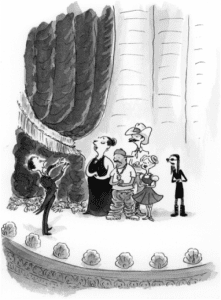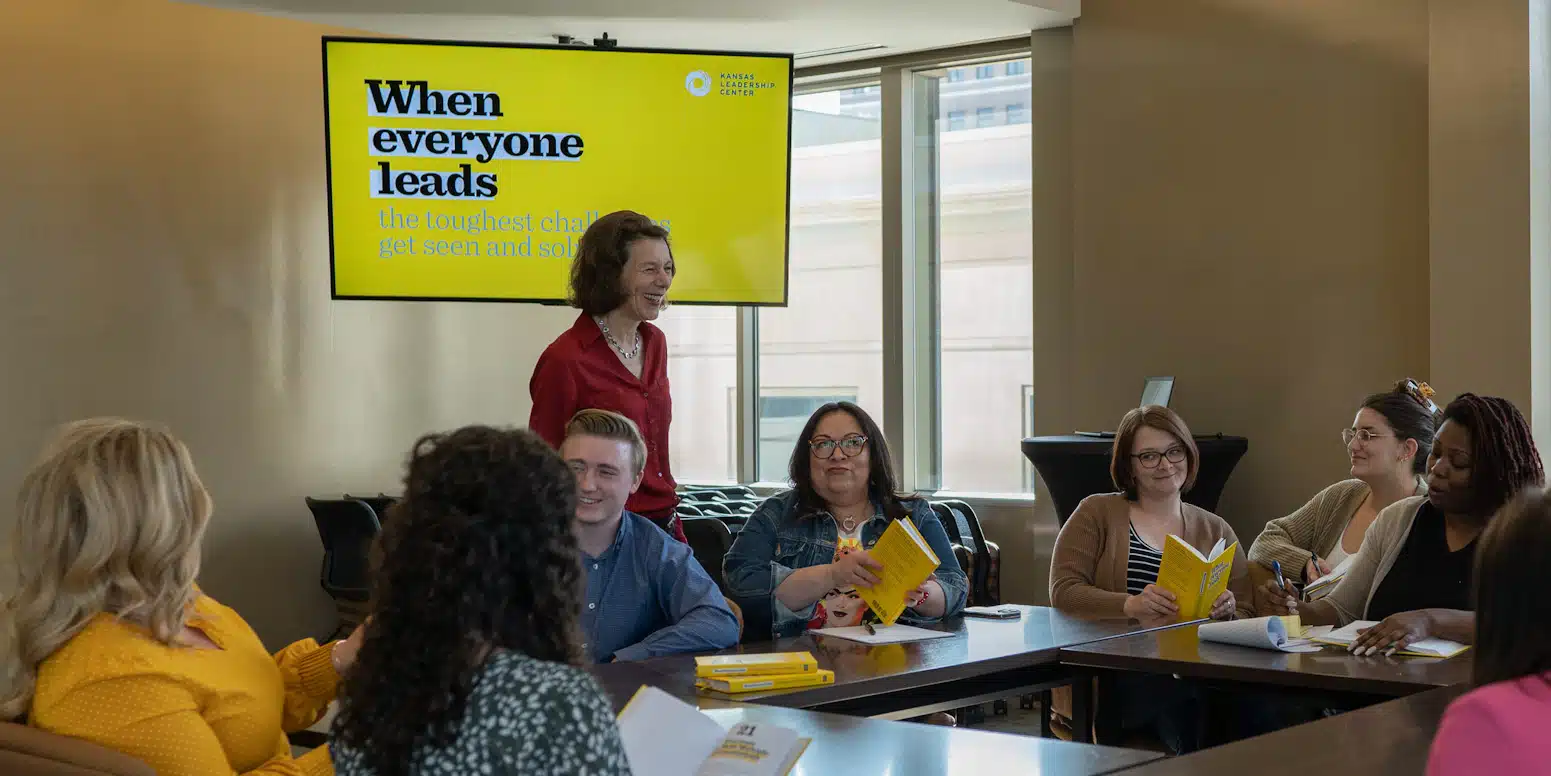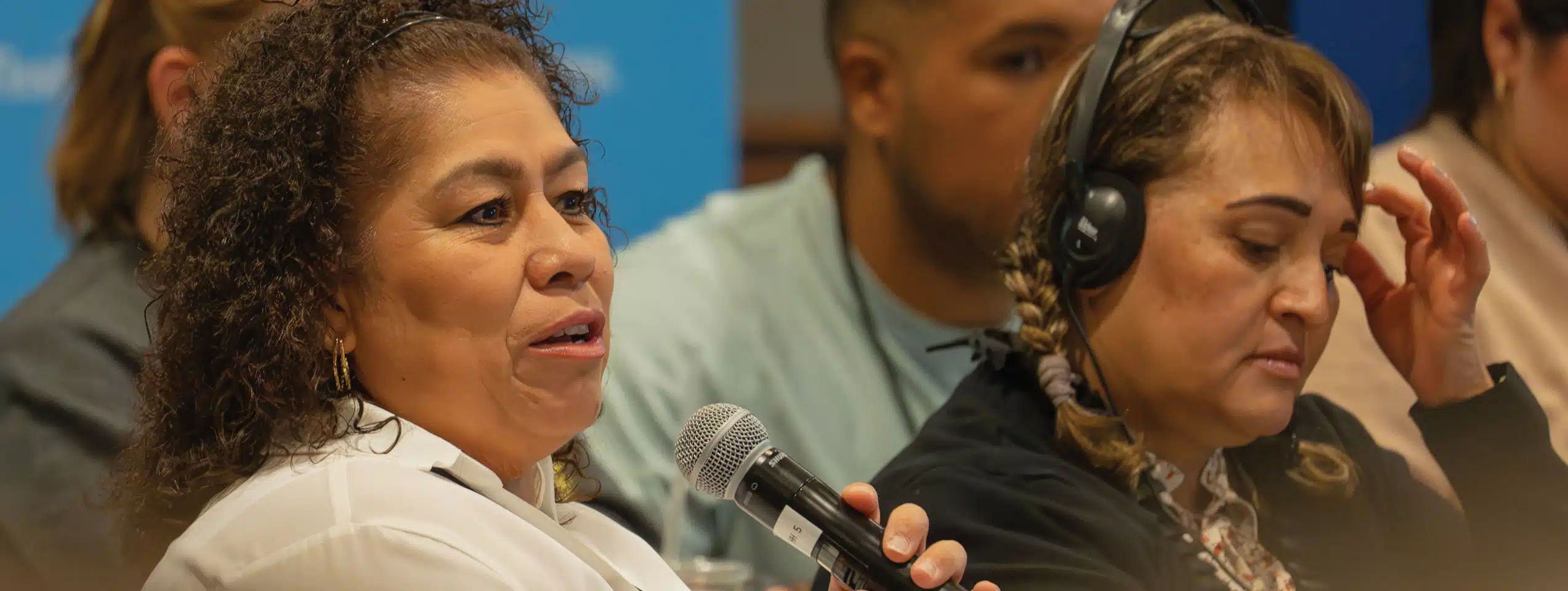
Engaging unusual voices requires a willingness to believe that other voices are needed to make greater progress. Alumni engaged today in an On the Balcony discussion around how to effectively engage unusual voices in adaptive work. Their written comments are below.
Who are the unusual voices? What comes to your mind?
Joe: Unusual Voices: Everyone else
Joe: differing opinions
Joe: Look at things differently
Brandon: folks that might not identify as having “voice” or having the ability to make a difference.
Mazie: Those who need to be in the room, but may not have been invited.
Mandy: Not the obvious choice
Phil: different viewpoints,
Becky: members of factions that are not currently engaged in the decisions being made
Becky: Unusual voices: Those who are not heard (they might be speaking, just not on the right platform)
Thomas: I like Becky’s!
Adrienne: Being Hispanic, exactly what Mike just said. Thanks
Becky: The youth.
Thomas: Those who don’t naturally and automatically feel welcome in a community
Jeff: Maybe people they don’t agree or see the vision.
Adrienne: People are quick to place labels on “unusual’ voices that often time are not correct. This occurs when you are not open to an adverse opinion and when you do not listen.
Shirley: Some social media aspects allow persons who would not otherwise be heard who may have variant cultural and/or life experiences can offer a wealth of information and thought.
Allan: Not sure why my audio is not coming through, but sometimes the key stakeholder or customer is the voice that is most unusual or most excluded—in particular during internal conversations (to a team, to an organization, to a governance body, to a company)
Phil: Is it the goal to have voices from each of the quadrants
Joy: One of my recent experiments on the school board in Wichita is to involve PTO Presidents from schools in my district in a meeting to hear what they think. Hey have a high stake, but their influence beyond a local school is pretty low.
Hoyt: Like the immigrants in today’s legislature.
Becky: Joy – I am also experiencing the same culture, in addition, the BOE doesn’t feel the stakes are high
Joy: Becky -say more about your BOE. I am not sure I understand.
Becky: The BOE believes student success is the responsibility for learning is the admin’s responsibility. We just vote
Why is it important to engage unusual voices?
Joe: To hear the unknown unknowns. To manage risk.
Joy: I am right there with you.
Allan: Should there be a difference in how we approach unusual voices when dealing with an adaptive challenge vs. a technical one? In a technical challenge, an expert should be able to solve the problem, so the need/requirement to engage usual voice may not be as important/significant (even though additional POVs and perspectives are always useful). Should the nature of the challenge dictate the level of engagement of unusual voices?
Shirley: Some of the obstacles in “engaging” the voiceless to make changes of more efficacy include the rigidity of the systems involved, regardless of what they are; the human quest for power and position we too often see and experience and the fact that even though voices can be invited into the conversations, there is often very little follow through and/or action about the grit of those conversations.
Joy: I agree Shirley! It takes a lot of effort and being willing stand up against the status quo to challenge that idea.
How do we do this? What do you do?
Jeff: One on ones vs. group settings
Mike: Click on the link …. I tried a different way to engage the public in a planning process. It was like Joe said…”meeting people where they are” :http://www.ourtownplanning.org/results/meeting-input/
Becky: go to them
Jeff: talk to them where they work.
Mike: We went all they way down to the home and into the schools … I became “Crazy Uncle Mike” to the elementary school children.
Becky: Social media – many people are braver when typing rather than speaking.
Mazie: conduct focus groups where they are with peers and and speak freely, vs a large group.
Allan: Best Practice: I really like the earlier comment (by Mike perhaps?) to look at where and when you engage your unusual voices: if you only hold meetings in the City Council chamber, you won’t be able to reach out to people who can’t attend the meeting due to time/distance/transportation access, etc.—taking the meeting to your constituents vs. making them come to you.
Joy: When people do speak at a public meeting – we need to be kind & courteous back. I have been to several meetings where members of the public who did go out on a limb to talk were treated with disrespect by the meeting leader.
Joe: Ask yourself – Am I listening
Mazie: Agree Joe….also ask What do I need to learn?
Adrienne: In regards to the Hispanic population it can be as simple as receiving an invitation via phone or mail.
Shirley: Also ask, what am I going to do with the information I have just gained?
Adrienne: Just being invited
Adrienne: Invited to the table!
What gets in the way of us doing this? Why doesn’t this happen more often?
Jeff: Leader/authority person keeps away from pushing the talk to where they want it to lead vs where the group may want it to lead.
Dick: I avoid meetings where I am asking people to come in and tell me/us what they think as attendance is poor. I prefer to ask people to come in to respond to information that I have made public.
Becky: I have been inviting and inserting myself into their meetings and engage in one on one conversations
Allan: Other ways to engage unusual voices: 1) solicit feedback via surveys (mail, web, email), 2) form teams to hold direct meetings with customers/constituents, 3) go door to door (like get out the vote efforts or the US Census)
Pamaline: It is time consuming..
Jeff: Authority
Joy: Time – it takes time to go out and have more one-on-one discussions
Hoyt: Personal agendas of Leaders.
Dick: Too many folks feel it is something that they have to do rather than something they want to do and are passionate about it
Becky: It’s hard – it takes intention, time, and effort
Becky: I have not identified the unusual voices because they aren’t engaged
Joe: Sins of omission? Lack of self-awareness
Cathy: Time constraints to accomplish goals – takes time to find and engage unusual voices in meaningful ways.
Joy: Personal cost – it is a personal cost to discuss the hard issues, disagree, and somehow find a way forward. There is an emotional price as well as sometimes a challenge to our closely held beliefs.
Shirley: Joy, you are exactly correct. To really hear, one needs to plan on becoming a true and intentional advocate for those they may speak for.
Adrienne: Mike, My suggestion is to find a key Hispanic stakeholder who is bi-lingual to go into the undocumented community to educate them on who the stakeholders are in the community.
Adrienne: Information must be in Spanish and English
Adrienne: A PSA on a Hispanic radio station
How would you know that you were doing it? What would you need to see/hear to know that you’re engaging unusual voices? What’s the evidence?
Becky: raised personal heat
Adrienne: I would know if I am engaging unusual voices can be as simple as someone coming up to me after an event or conversation that says thank you for bringing us to together or thank you for asking
Adrienne: Followed by a question back to me on what can I do to help
Shirley: Resistance would be forthcoming from those who are entrenched in their own positions.
Joe: Conflict
Jeff: Looking down and seeing things getting done! Positive progress and movement towards the issue or vision.
Joy: Shirley – I was thinking the same thing. I thought I was being cynical though.
Shirley: No, we are being realistic. Sounds like we have both been on those ends of things of being an implant of change.
Hoyt: People bring resources to the problem you did not even know you need.
Joy: Yep…sounds like Joe has been there too. 🙂
Brandon: tradition and power often prevent folks from engaging the unusual voices. There is a degree/sense of loss that is associated creating the space for all people to be engaged in the work of civic leadership. Communities can move beyond this simplified view by recognizing how “self-interest” is also served when we accept a “common good” worldview. This “mind shift” is the hard adaptive work associated with civic leadership. I enjoyed the conversation. Thanks everyone. I have to leave early to make my next meeting. I look forward to continuing conversation next month.
Allan: Sometimes in order to engage unusual voices, you need literally to be able to speak the languages of the people: whether that’s having a Spanish interpreter at the site, or a sign-language interpreter, etc.: show that you are prepared to communicate with your target group, by having the tools required to enable that communication
Brandon: one last thought – not only would we see increase participation….but the modes of participation would also be more diverse and inclusive
Adrienne: How do we help those with influence? Send them to KLC
Mike: Uncommon voices can be in what we often term as our Informal Networks http://www.ourtownplanning.org/wp-content/uploads/2014/07/Our-Town-Plann…
Joy: Love it!
Lawrence: Great idea Cathy!
Adrienne: Love that idea that Kathy just gave!
Pamaline: When the unusual voice is Accepted and Acknowledged it feels GREAT and inviting!
Pamaline: When that doesn’t happen, it perpetuates the disenfranchised feeling.
Steve: For example, Circle Leaders can be great examples for testimonials of experience as unusual voices.


